The world's least-developed countries have accused richer nations of failing to provide financial backing for a strong new global climate treaty.
With little negotiating time left ahead of the UN climate summit in Paris later this year, diplomats from nearly 200 countries meeting in Bonn have reportedly made little progress, raising the possibility of a last-minute diplomatic fiasco, as happened in Copenhagen in 2009.
The mistrust between countries that built up in Copenhagen now threatens the Paris talks, said Tosi Mpanu-Mpanu of the Democratic Republic of Congo, who is chairman of the 48-strong least-developed countries group. "The [UN] process is flawed by a complete lack of trust and confidence between rich and poor countries," he said. "We need time. Because of this lack of trust we have no other way of proceeding. We have to go ahead with baby steps. We are not making much progress, but we are going in the right direction. There are so many issues. It's a process of attrition.
"Every year there is a watering down of the commitments. It feels every year that we are losing out. Twenty countries contribute 80% of emissions, the rest 20%. Yet we in Africa are being asked to cut emissions. OK, we say, but help us. Give us finance, technology."
Concern is growing that rich countries, which have together pledged to mobilise $100bn a year to help countries adapt to climate change, are so far unwilling to discuss how the money will be raised, said Martin Khor, director of the South Centre, a leading intergovernmental thinktank of developing countries. "The developing countries are disappointed that there seems to be little hope that the $100bn will materialise. They have no idea what will be available, so they cannot plan ahead. If countries really wanted a [strong] deal, they would be talking about finance by now," said Khor.
Amjad Abdulla of the Maldives, chief negotiator for the 39-member Alliance of Small Island States - countries highly vulnerable to sea-level rises and extreme weather events - said: "We have an enormous task. We need to speed up the work. The ambition for a good deal has not gone. Our target is still to negotiate to hold temperatures to a 1.5C rise. But achieving it is going to be difficult and may require dramatic efforts by humanity."
Jan Kowalzig, climate change policy officer with Oxfam, said: "The French government [which will chair the Paris meeting] is becoming extremely nervous. It has to show success. Everyone recognises the talks are going too slowly, but the US completely refuses to put anything on the table about finance. The developed countries are not ready to talk about it. Informally, they recognise they need to make concessions, but the big danger is that the $100bn becomes a clever accountancy plan. The developing countries would see through that. A few powerful countries would be happy with a weak deal. The US, China, Japan and India are not very interested in a strong deal because they would be bound by it."
With only around 10 days' worth of negotiations remaining after the Bonn talks close next week, no discussion has started on three vital issues: whether rich countries should compensate poor ones for the loss and damage done by extreme weather events exacerbated by climate change; how deep the overall emission cuts should be; and how countries should fairly share the burden of cuts.
So far, 36 countries, including the world's biggest emitters, China and the US, have pledged to limit emissions of greenhouse gases, but, given the scale of current commitments, the world is on a path The world's least-developed countries have accused richer nations of failing to provide financial backing for a strong new global climate treaty.
With little negotiating time left ahead of the UN climate summit in Paris later this year, diplomats from nearly 200 countries meeting in Bonn have reportedly made little progress, raising the possibility of a last-minute diplomatic fiasco, as happened in Copenhagen in 2009.
The mistrust between countries that built up in Copenhagen now threatens the Paris talks, said Tosi Mpanu-Mpanu of the Democratic Republic of Congo, who is chairman of the 48-strong least-developed countries group. "The [UN] process is flawed by a complete lack of trust and confidence between rich and poor countries," he said. "We need time. Because of this lack of trust we have no other way of proceeding. We have to go ahead with baby steps. We are not making much progress, but we are going in the right direction. There are so many issues. It's a process of attrition.
"Every year there is a watering down of the commitments. It feels every year that we are losing out. Twenty countries contribute 80% of emissions, the rest 20%. Yet we in Africa are being asked to cut emissions. OK, we say, but help us. Give us finance, technology."
Concern is growing that rich countries, which have together pledged to mobilise $100bn a year to help countries adapt to climate change, are so far unwilling to discuss how the money will be raised, said Martin Khor, director of the South Centre, a leading intergovernmental thinktank of developing countries. "The developing countries are disappointed that there seems to be little hope that the $100bn will materialise. They have no idea what will be available, so they cannot plan ahead. If countries really wanted a [strong] deal, they would be talking about finance by now," said Khor.
Amjad Abdulla of the Maldives, chief negotiator for the 39-member Alliance of Small Island States - countries highly vulnerable to sea-level rises and extreme weather events - said: "We have an enormous task. We need to speed up the work. The ambition for a good deal has not gone. Our target is still to negotiate to hold temperatures to a 1.5C rise. But achieving it is going to be difficult and may require dramatic efforts by humanity."
Jan Kowalzig, climate change policy officer with Oxfam, said: "The French government [which will chair the Paris meeting] is becoming extremely nervous. It has to show success. Everyone recognises the talks are going too slowly, but the US completely refuses to put anything on the table about finance. The developed countries are not ready to talk about it. Informally, they recognise they need to make concessions, but the big danger is that the $100bn becomes a clever accountancy plan. The developing countries would see through that. A few powerful countries would be happy with a weak deal. The US, China, Japan and India are not very interested in a strong deal because they would be bound by it."
With only around 10 days' worth of negotiations remaining after the Bonn talks close next week, no discussion has started on three vital issues: whether rich countries should compensate poor ones for the loss and damage done by extreme weather events exacerbated by climate change; how deep the overall emission cuts should be; and how countries should fairly share the burden of cuts.
So far, 36 countries, including the world's biggest emitters, China and the US, have pledged to limit emissions of greenhouse gases, but, given the scale of current commitments, the world is on a path to a 3-4C temperature rise. However, more than 150 smaller countries have yet to submit their carbon pledges.
Kofi Annan, UN secretary general from 1997 to 2006, urged all countries to "seize the climate moment". He added: "Climate change is the greatest challenge facing humanity today. The effects are being felt all over the planet, but not equally. In Africa, millions already feel the consequences of global warming. Yet millions more have never reaped the benefits that citizens in countries with high-carbon economies have long taken for granted.
"Climate justice demands that the world seizes the climate moment. The window of opportunity for avoiding a climate catastrophe is open, but it is closing - and closing fast," Annan said at the launch of the latest Africa Progress Panel report.
Leading environment and development NGOs urged David Cameron to act on his climate pledges and use the G7 conference in Berlin to support a global goal to reduce overall carbon emissions to zero.
"The Paris climate conference is the biggest opportunity in a generation to create momentum for a safer and more prosperous world. He can use it to build trust in developing countries by supporting a roadmap to $100bn of climate finance and support goals for a global goal to reduce overall carbon emissions to zero by 2050," said the heads of Christian Aid, WWF, the RSPB and others.
Kccwg Subscription
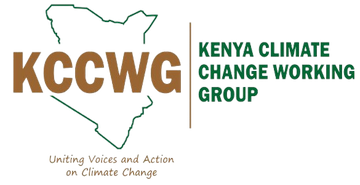
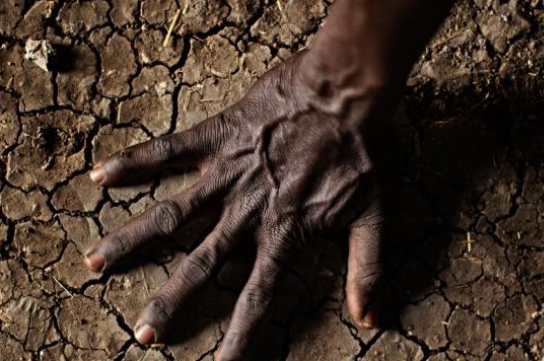
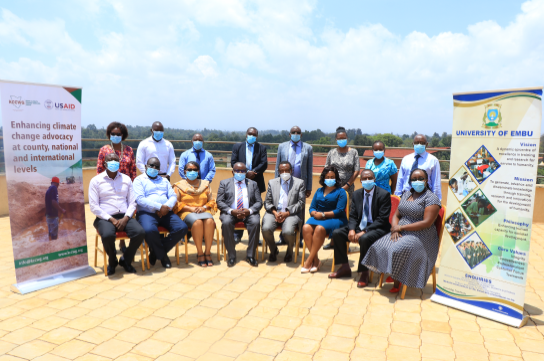
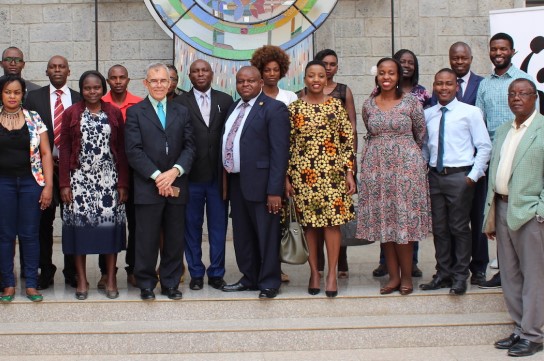
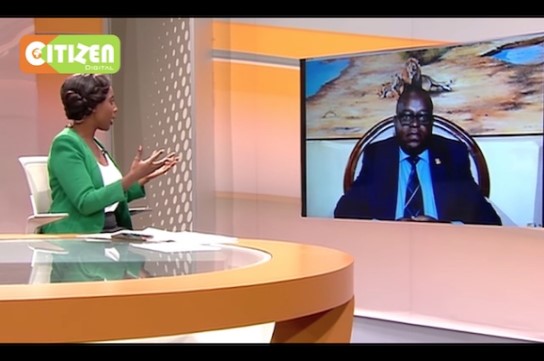
Follow @kccwg
Follow @unfccc